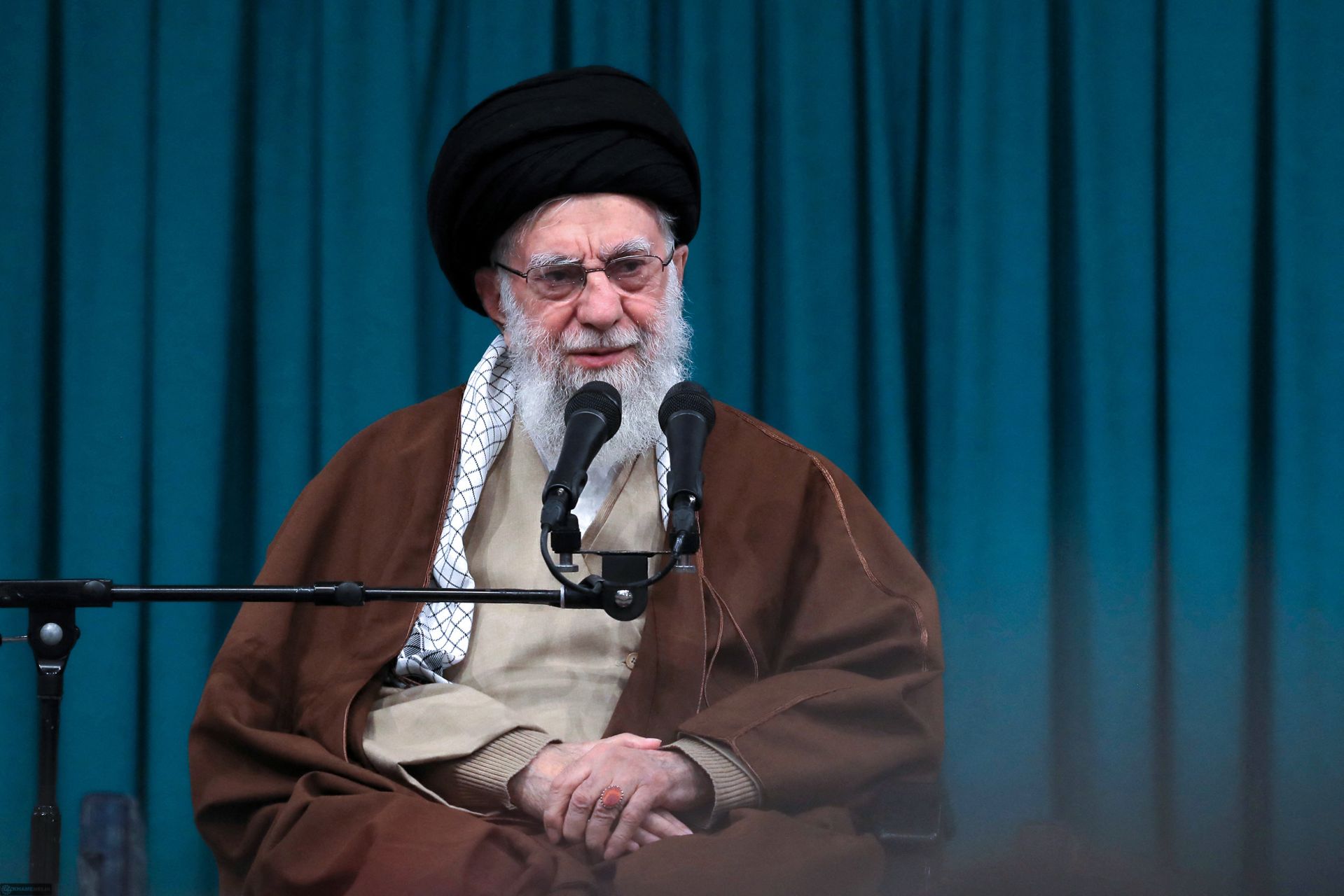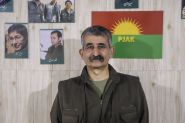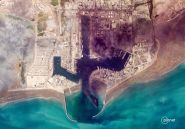- Home
- Middle East
- Khamenei Threatens Neighboring Countries Aiding U.S. Strikes

This handout picture released by the office of Iran's Supreme Leader Ayatollah Ali Khamenei on January 1, 2025, shows him making a speech in Tehran, ahead of the fifth anniversary of Iran's slain Revolutionary Guards commander Qasem Soleimani 2020 killing in a US strike in Baghdad. ©Khamenei.ir / AFP
Iran has defied US demands for direct negotiations regarding its nuclear program, which come with the threat of military action, and has cautioned neighboring countries hosting US bases that they could become targets if they participate in any military action, as stated by a senior Iranian official cited by Reuters.
Despite rejecting US President Donald Trump's insistence on direct talks, Iran remains open to pursuing indirect negotiations facilitated by Oman, a long-established channel for communication between the adversarial nations, according to the official, who spoke to Reuters on the condition of anonymity. "Indirect talks offer a chance to evaluate Washington's seriousness about a political solution with Iran," mentioned the official.
While acknowledging that this approach could be "rocky," the official noted that such discussions could commence soon if US communications were supportive. Iran has warned Iraq, Kuwait, the United Arab Emirates, Qatar, Turkey, and Bahrain that any facilitation of a US attack on Iran, including the use of their airspace or territory by the US military, would be viewed as an act of aggression, the official stated.
Supreme Leader Ayatollah Ali Khamenei has placed Iran's armed forces on high alert, warning Gulf States that such actions "will have severe consequences for them," the official added. President Trump's threats of military action have heightened tensions across the region, already fraught with conflicts in Gaza, Lebanon, Yemen, and Syria, and Israeli-Iranian exchanges of fire.
Concerns about a broader regional conflict have unsettled Gulf states, where a significant portion of the world's oil supplies transit. Spokespeople for Iraq, Kuwait, the UAE, Qatar, and Bahrain did not immediately comment, while Turkey's Foreign Ministry indicated it was unaware of any warning but acknowledged that such messages might be conveyed through other channels.
Iranian state media reported that Kuwait had assured Iran it would not permit any aggressive actions from its territory. Meanwhile, Russia, a key ally of Iran, deemed US military threats against the Islamic Republic unacceptable and called for restraint. However, Iran remains cautious about Russia's commitment, which, according to a second Iranian official, "depends on the dynamics" of the relationship between Trump and Russian President Vladimir Putin.
President Trump has expressed a preference for a diplomatic resolution over military confrontation, and on March 7, he reportedly wrote to Khamenei suggesting talks. The first Iranian official indicated that initial indirect discussions might involve Omani intermediaries shuttling between Iranian and US delegations, with Khamenei authorizing Foreign Minister Abbas Araqchi or his deputy, Majid Takht-e Ravanchi, to participate in any talks in Muscat. Oman's government spokesperson did not immediately respond to a request for comment.
The official suggested a two-month window to reach an agreement, highlighting concerns that Iran's long-standing adversary, Israel, might initiate its own attack if talks drag on, potentially triggering a "snap back" of all international sanctions to prevent Iran from acquiring a nuclear weapon. Although Iran has consistently denied seeking a nuclear weapon, it is "dramatically" accelerating uranium enrichment, approaching the 90% weapons-grade level, according to the U.N. nuclear watchdog.
Western nations argue that such high-level enrichment is unnecessary for civilian programs and that no other country has enriched uranium to this extent without developing nuclear weapons. While Iran has expressed willingness to engage in talks with the US to address program concerns, it has refused direct negotiations under threats and insists its missile program is not open for discussion.
A senior Iranian military commander, Amirali Hajizadeh of the Islamic Revolutionary Guards Corps, implied that US bases in the region could be targeted in any conflict. In 2020, Iran retaliated against US bases in Iraq following the assassination of Qassem Soleimani, head of the IRGC's Quds Force, in a US missile strike in Baghdad.
Read more



Comments